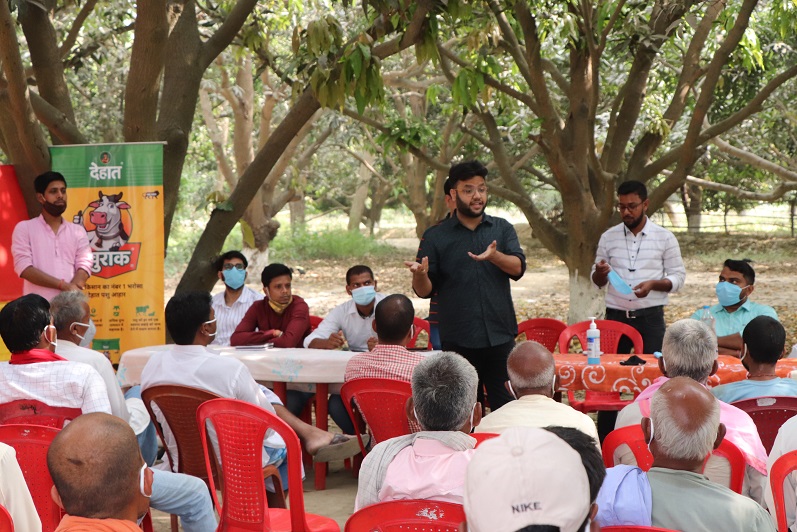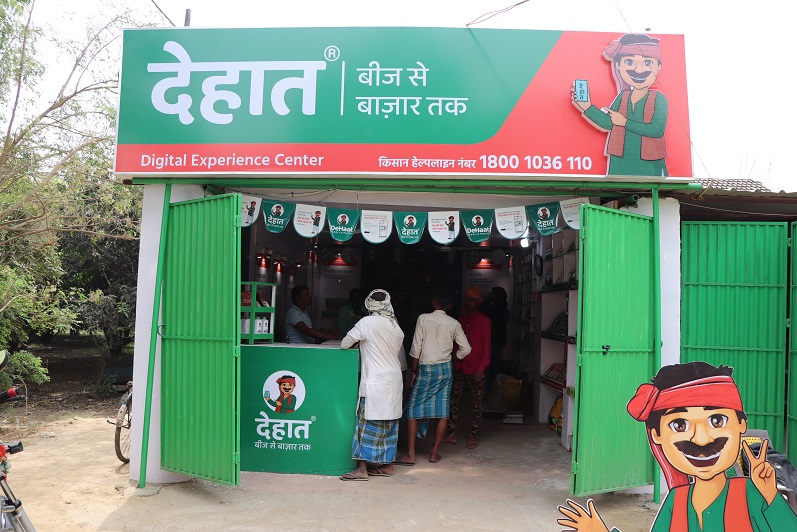Omnivore is an impact venture capital firm, based in India, which funds entrepreneurs building the future of agriculture and food systems. Omnivore pioneered agritech investing in India and has backed over 35 startups since 2011. Every day, Omnivore portfolio companies drive agricultural prosperity and transform food systems across India, making farming more profitable, resilient, sustainable and climate-proof.
How can agricultural inclusive businesses harness technological innovations to improve food security and farmer livelihoods in India?
Our agri value chains are massive, with several stakeholders and myriad complex challenges from start to finish. These challenges result in situations where the terms of trade are against the farmers, and the intermediaries make maximum benefits while the farmers take maximum risks. When startups harness the power of technology to iron out these inefficiencies while also ensuring ease of doing business for farmers, they pave the way for better farmer profits and higher resilience towards economic shocks.
For instance, a digital B2B agri marketplace has the power to provide stakeholders with better chances of price discovery, more information symmetry, access to alternate channels of business, access to organized credit, logistics, better quality inputs, advisory, and several other aspects. All these features can vastly improve farmer prosperity and access to affordable nutritious food for all.
What key risks or barriers can be associated with such innovations, and how can inclusive businesses overcome them?
Getting farmers to adopt something new is almost always a significant challenge. However, clear communication, access to robust infrastructure, organized credit, better market linkages, robust customer support, and, most importantly, showing farmers how the innovation will augment their incomes make the process easier. Being true to the farmers and sharing the upside of change with them help the businesses to overcome operational challenges and build trust.
Take DeHaat’s journey for instance. DeHaat is an online platform offering full-stack agricultural services to farmers in India. After struggling with their business in the initial years, the DeHaat team changed its strategy. They realized that winning farmers’ trust is key, and the first step in achieving that was to bring efficiency in cultivating the existing crops. The founders invested time on the ground by spending months with the farmers, toiling hard with them and acting like their companions. This exercise helped them earn the farmers’ trust, and the farmers in turn became open to adopting alternative ways of doing business.

What are you looking for in the companies you are investing in?
When we assess startups, we primarily look at the four Ts – Team, Technology, TAM (total available market), and Traction. The company must have a core team with strong educational pedigrees and work experience, ideally in other startups. A background in agriculture is, of course, always a bonus. The technology aspect is equally important, as entrepreneurs must be able to develop unique propositions for their customers. We also look at whether it is a big enough opportunity (TAM) to justify having venture capital. Additionally, the entrepreneurs need to work with farmers to solve their problems and figure out solutions that are simple but at the same time scalable. Finally, they must show strong early traction, indicating product-market fit.
Can you share some examples of innovative inclusive businesses you have invested in?
I would like to highlight two – DeHaat, the Indian online platform I mentioned earlier; and Arya, an integrated post-harvest platform across the agricultural value chain. They provide warehouse discovery, warehouse receipt financing, collateral management, and market linkages.
Nurturing a community of over 800,000 farmers, DeHaat offers a range of services such as the distribution of high-quality agricultural inputs, customized farm advisory, access to financial services, and market linkages to sell farmers’ produce. It has built a rural retail network of more than 6,000 micro-entrepreneurs for last-mile delivery and aggregation. DeHaat leverages its network to provide high-quality inputs at lower prices, improves yields by offering free advisory, and aggregates produce to help farmers achieve higher prices. By organizing and streamlining the fragmented agri value chain, DeHaat is facilitating sustainable food production with optimum use of inputs and robust market linkage. Thereby, the startup is ensuring the accessibility of quality produce.
Arya improves food security and farmer incomes by limiting post-harvest losses. 10 million MT of food grains is lost to spoilage annually in India, which represents a loss of about INR 93,000 crore (USD 13 billion) worth of agricultural produce. This is mainly due to the lack of adequate storage and warehousing facilities, and the lack of post-harvest liquidity. To compound this, limited access to credit further impedes the adoption of proper storage and warehousing practices. To solve these challenges, Arya offers a warehouse discovery platform enabling the storage of 1.1 million MT of food produce. Arya serves as a collateral manager or custodian for commodity stocks, enabling financial institutions such as banks to lend USD 41 million against these stocks.

With the OmniX Bio initiative, Omnivore also invests in agrifood life science start-ups. Can you explain why this is important?
Despite being the third most active startup ecosystem in the world, India’s progress in agrifood life sciences has stalled over the past two decades. Innovations in synthetic biology, chemistry, and biotechnology are critical for the future of Indian agriculture and food systems, which will soon bear the full brunt of climate change. Agrifood life sciences can play a critical role in tackling both climate mitigation (reducing India’s greenhouse gas emissions) and climate adaptation (securing a future for India’s farmers), as well as other agricultural sustainability challenges. Our OmniX Bio initiative will provide entrepreneurs in this space with venture funding, mentorship from global agrifood life sciences leaders, institutional partnerships, and business development support to access domestic and export sales channels.
What future trends do you foresee for agriculture and food security in India, and what role can Inclusive Business play?
Being one of the most vulnerable countries to climate change, the future of Indian agriculture depends on climate action. In the coming years, we would like to see more innovations in life sciences, climate tech, precision agritech, and water tech, to name a few. iBAN’s focus on the replication of inclusive business models will be an asset to drive the expansion of sustainable innovations across geographies.